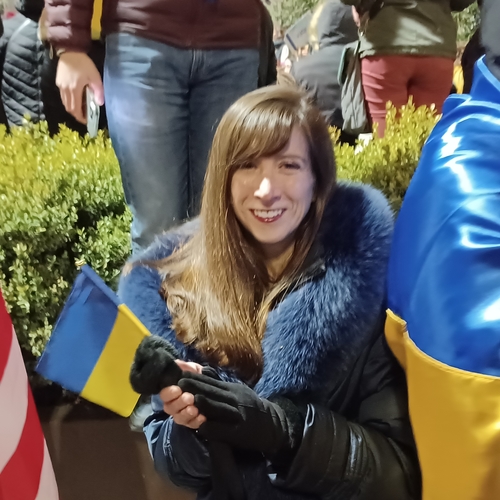
Kathleen Collins
267 19th Ave S
Minneapolis,
MN
55455
Kathleen Collins is an Associate Professor in the Department of Political Science and a faculty affiliate in Islamic Studies. She received her Ph.D. from Stanford University in Political Science with a focus on Russia and Muslim Eurasia. Collins received her B.A., summa cum laude, and Phi Beta Kappa, with a dual major in Russian Language and Literature and Government and International Studies from the University of Notre Dame. She also studied Uzbek and Turkish in graduate school.
Professor Collins is the author of Clan Politics and Regime Transition in Central Asia (Cambridge University Press), which won the Central Eurasian Studies Society Award for the Best Book in the Social Sciences on Central Eurasia, 2008. Her second book is Politicizing Islam in Central Asia: From the Russian Revolution to the Afghan and Syrian Jihads (Oxford University Press, 2023).
-----------------------------------------------------------
From the Oxford University Press website: https://global.oup.com/academic/product/politicizing-islam-978019768506…;
Politicizing Islam in Central Asia: From the Russian Revolution to the Afghan and Syrian Jihads
A sweeping history of Islamism in Central Asia from the Russian Revolution to the present through Soviet-era archival documents, oral histories, and a trove of interviews and focus groups.
Few observers anticipated a surge of Islamism in Central Asia, after seventy years of forced communist atheism. Muslims do not inevitably support Islamism, a modern political ideology of Islam. Yet, Islamism became the dominant form of political opposition in post-Soviet Uzbekistan and Tajikistan. In Politicizing Islam in Central Asia, Kathleen Collins explores the causes, dynamics, and variation in Islamist movements--first within the USSR, and then in the post-Soviet states of Tajikistan, Uzbekistan, and Kyrgyzstan. Drawing upon extensive ethnographic and historical research on Islamist mobilization, she explains the strategies and relative success of each Central Asian Islamist movement. Collins argues that in each case, state repression of Islam, by Soviet and post-Soviet regimes, together with the diffusion of religious ideologies, motivated Islamist mobilization. Sweeping in scope, this book traces the dynamics of Central Asian Islamist movements from the Soviet era through the Tajik civil war, the Afghan jihad against the US, and the foreign fighter movement joining the Syrian jihad.
----------------------------------------------------------
Collins is a recipient of the national Carnegie Scholar Award in 2003, granted to "thirteen scholars chosen for innovative scholarship in education, international development, strengthening U.S. democracy, and international peace and security." She was subsequently awarded the McKnight Land-Grant Professorship Award, and numerous grants from the USIP, NCEEER, IREX, the Kellogg Institute, the Templeton Foundation, and other institutions. Collins won the S. M. Lipset Award in a national competition for the best dissertation in Comparative Politics or Sociology. She completed a postdoctoral fellowship at Harvard, at the Davis Center for Russian Research.
Collins believes in using her scholarship, through public engagement, to promote the values of democracy, whether at home or in Eurasia. In addition to her academic research, Collins has worked on projects with or consulted for the United States Agency for International Development, the United Nations Development Program, the International Crisis Group, the National Bureau of Asian Research, and Freedom House. She has presented her work to multiple US government agencies, including the Helsinki Commission, the Department of State, and the Department of Defense. She has spoken extensively to the media about Afghanistan and Central Asia, and about Russia's invasion of Ukraine.
Collins has published over two dozen articles in World Politics, Comparative Politics, the Journal of Democracy, Political Research Quarterly, Europe-Asia Studies, other academic and policy journals, and numerous edited book volumes. She has given presentations on her research in Europe, Central Asia, Russia, Turkey, Canada, and across the United States.
Collins conducted extensive field research for her books in Russia, Kyrgyzstan, Uzbekistan, Tajikistan, Turkmenistan, Azerbaijan, and Turkey. Her research for two ongoing projects -- on Islamism in the Caucasus, and on military reform in post-communist states -- has involved fieldwork in Azerbaijan, Georgia, Latvia, Lithuania, Estonia, and Poland in 2022-23. Her new study of post-communist military reform originated in her work in Kyrgyzstan in graduate school, on the Partnership for Peace agreement. Collins is examining the intersection of democratic values and ideas, civic nationalism, and the effective adoption of NATO military standards and international norms of military conduct and just war. While she began several years ago by studying obstacles to military reform in Russia, she is now looking at successful patterns of reform in the Baltics and Eastern Europe, and mixed reform efforts in the Caucasus and Ukraine.
At Minnesota, Collins has taught doctoral and undergraduate courses on Central Asia, Soviet history and politics, Russian politics, nationalism and ethnic conflict, Afghanistan's wars, Islamist movements and politics across the "Islamic world," Islam and democracy, and religion and politics. Collins was awarded the College of Liberal Arts "Red Motley Teaching Award" in 2024. She teaches freshmen through Ph.D. students, has supervised numerous doctoral dissertations, and has advised students from Central Asia on Soros Foundation and other scholarships.
She has three children who often come to class with her to learn about life and politics outside of Minnesota.
Educational Background
- Ph.D.: Political Science, Stanford University
- B.A.: Government and International Studies and Russian Language and Literature, University of Notre Dame
Specialties
- Kyrgyzstan, Uzbekistan, Tajikistan, Azerbaijan, Russia, Georgia
- challenges to post-communist democratization and economic transition
- Islamist movements, Islam and politics
- Soviet and post-Soviet political development in Russia and the successor states
- clan, tribal, and ethnic politics